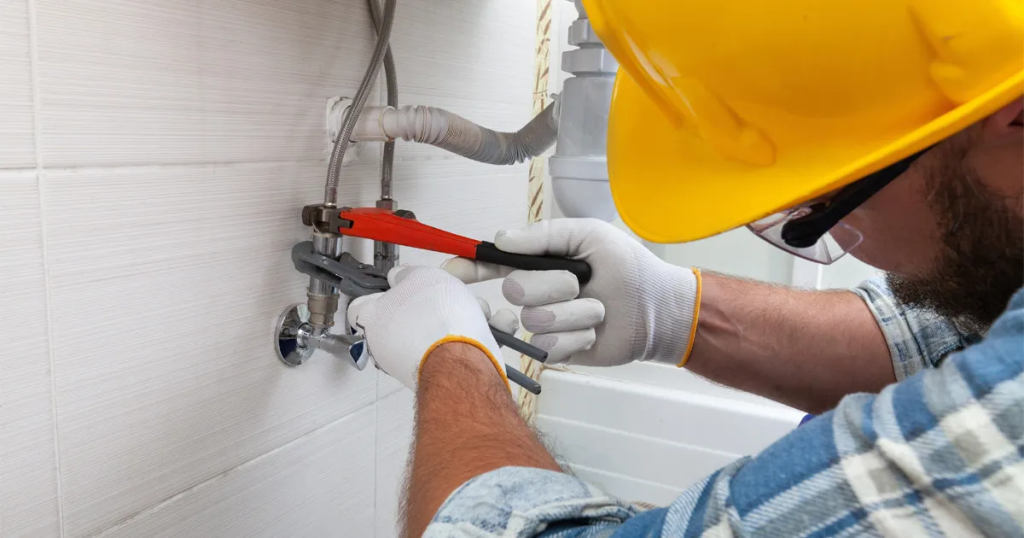
Setting up a plumbing business can be a lucrative and fulfilling venture, but it needs careful planning and consideration. If you have just qualified as a plumber, or are thinking about starting out on your own, you might be considering the next steps in establishing yourself in the trade. Here’s a comprehensive guide of ten things to help you navigate the process.
1. Understand the Industry
The plumbing industry is essential and consistently in demand, offering services for residential, commercial, and industrial clients. Understanding the scope of services—such as installation, maintenance, and repair of piping systems, fixtures, and appliances—is crucial. Knowledge of market trends, customer needs, and potential competition will give you a competitive edge.
2. Get the Necessary Qualifications and Licensing
Plumbing is a regulated profession, and obtaining the right qualifications is critical. Typically, this involves completing a plumbing apprenticeship program, which combines classroom education with hands-on training. Afterward, you must pass a licensing exam to become a certified plumber. Different regions have varying requirements, so research your local regulations thoroughly.
3. Develop a Business Plan
A solid business plan is the backbone of any successful venture. Your plan should include:
- Executive Summary: An overview of your business idea.
- Market Analysis: Research on your target market and competitors.
- Services Offered: Detailed list of plumbing services you will provide.
- Marketing Strategy: How you will attract and retain customers.
- Financial Projections: Budgeting, funding requirements, and profit forecasts.
This plan will guide your operations and also attract potential investors and lenders.
4. Register Your Business and Get Insurance
Choose a business structure (sole proprietorship, partnership, LLC, etc.) and register your business name. After registration, obtaining the necessary insurance is vital. General liability insurance protects against property damage and bodily injury claims, while workers’ compensation insurance means you’re covered for employee injuries. Other policies, such as professional liability insurance, can provide additional protection.
5. Acquire Equipment and Tools
Investing in high-quality plumbing tools and equipment is essential. This includes basic hand tools (wrenches, pliers, pipe cutters), power tools (drills, saws), and specialized equipment (video inspection systems, pipe locators). A reliable vehicle is also necessary for transporting tools and materials to job sites.
6. Hire Qualified Staff
As your business grows, hiring skilled plumbers and support staff will be necessary. Look for experienced and certified professionals who align with your company’s values. Properly vetting candidates and providing ongoing training ensures high-quality service and customer satisfaction.
7. Marketing and Customer Acquisition
Effective marketing strategies are needed if you want to attract customers. Utilize a combination of traditional methods (flyers, business cards, local advertisements) and digital marketing (website, social media, SEO). If you need help with your digital marketing, there are plumber SEO companies out there that will be able to help you. Offering promotions, loyalty programs, and referral discounts can also help build a loyal customer base. Additionally, establishing a strong online presence with positive reviews and testimonials can significantly impact your credibility.
8. Focus on Customer Service
Exceptional customer service sets successful plumbing businesses apart. Prompt communication, transparency in pricing, and professionalism are key components. Satisfied customers are much more likely to return and recommend your services to others.
9. Stay Updated with Industry Trends and Regulations
The plumbing industry is constantly evolving with new technologies, methods, and regulations. Staying informed about these changes ensures that your business remains competitive and compliant. Joining professional organizations, attending trade shows, and participating in continuing education can help you stay ahead.
10. Financial Management
Efficient financial management is critical for sustaining your business. Keep thorough records of all expenses and income, and use accounting software to streamline this process. Regularly look at your financial statements to identify areas for improvement and ensure profitability.
